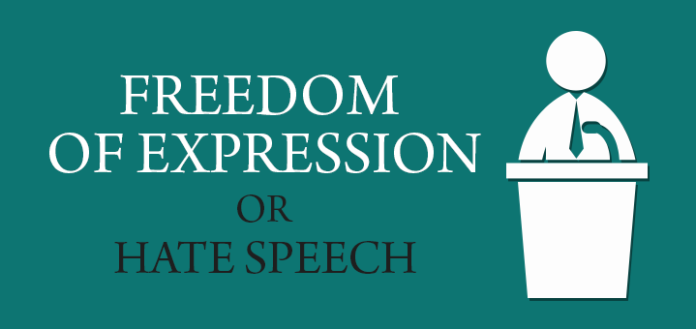The freedom of expression and free speech is a fundamental right and freedom which is enshrined in the constitution.
Article 33, of the Kenya’s constitution permits the right to freedom of expression. This includes: freedom to seek, receive or impart information or ideas, freedom of artistic creativity, academic freedom and freedom of scientific research.
According to the Article 27, every person is equal before the law and has the right to equal protection and equal benefit of the law. Due to this, state or individual shall not discriminate directly or indirectly against any person on any ground, including race, sex, pregnancy, marital status, health status, ethnic or social origin, colour, age, disability, religion, conscience, belief, culture, dress, language or birth.
At LRF, We insist that freedom of speech is one of the prerequisites for a democratic society. Democracy becomes meaningless if there is no freedom to give and receive information and this is granted by the constitution.
To what extent can an authority insist on hate speech without betraying the constitutional rights of individuals or groups? I admit that there is dilemma on the hate speech and freedom of expression in Kenya. Section 13 of the National Cohesion and Integration Act 2008, finds liable any person who uses threatening, abusive or insulting words or behavior, or displays any written material, which is threatening, abusive or insulting and that is intended or likely to stir up ethnic hatred. It further defines “ethnic hatred” as hatred against a group of persons defined by reference to Colour, race, nationality or ethnic or national origins. However, the definition of hate speech in this Act falls short of the definition required to protect one from being a victim of hate speech. This is because hate speech is only recognized as such only if it occurs on the basis of ethnicity or race.
Negotiating hate speech is a delicate matter due to human rights protection. From a human rights perspective, the right to life and the prohibition of discrimination are to be balanced against the freedom of expression. Freedom of speech principles should be balanced by considering whether or not these speech acts are offensive or incite violence. To achieve this, then the legislation should play its role. It has been argued previously that it is not possible to talk about a bright shining line dividing freedom of expression and hate speech. This is because hate speech covers a range of different types of expressions.
Due to this, it’s very important to look at the context in which the expression is made: What was the nature of the expression? What was the intention of the speaker? What was the broader political or socio-cultural context in which the expression was made? Who made the expression?
Take for example a politician or a cabinet secretary utters hate speech, that’s a particularly relevant circumstance. At this point you are dealing either with an elected representative, and therefore someone with a certain democratic mandate, or with the government. It is widely recognized that governments have a monopoly on power so any hate speech emanating from governmental circles could be perceived as having government approval, which makes the consequences for the victims very far-reaching indeed.
Similar sentiments have been expressed by Kenyans, they acknowledge that there is a thin line between freedom of expression and hate speech and henceforth, care must be taken to ensure that the charges facing hate speech suspects actually meet the threshold of hate speech, to avoid compromising the exercise of freedom of expression.
We should all remember that hate speech can inhibit others in their freedom of speech in public debate thus weakening democracy


